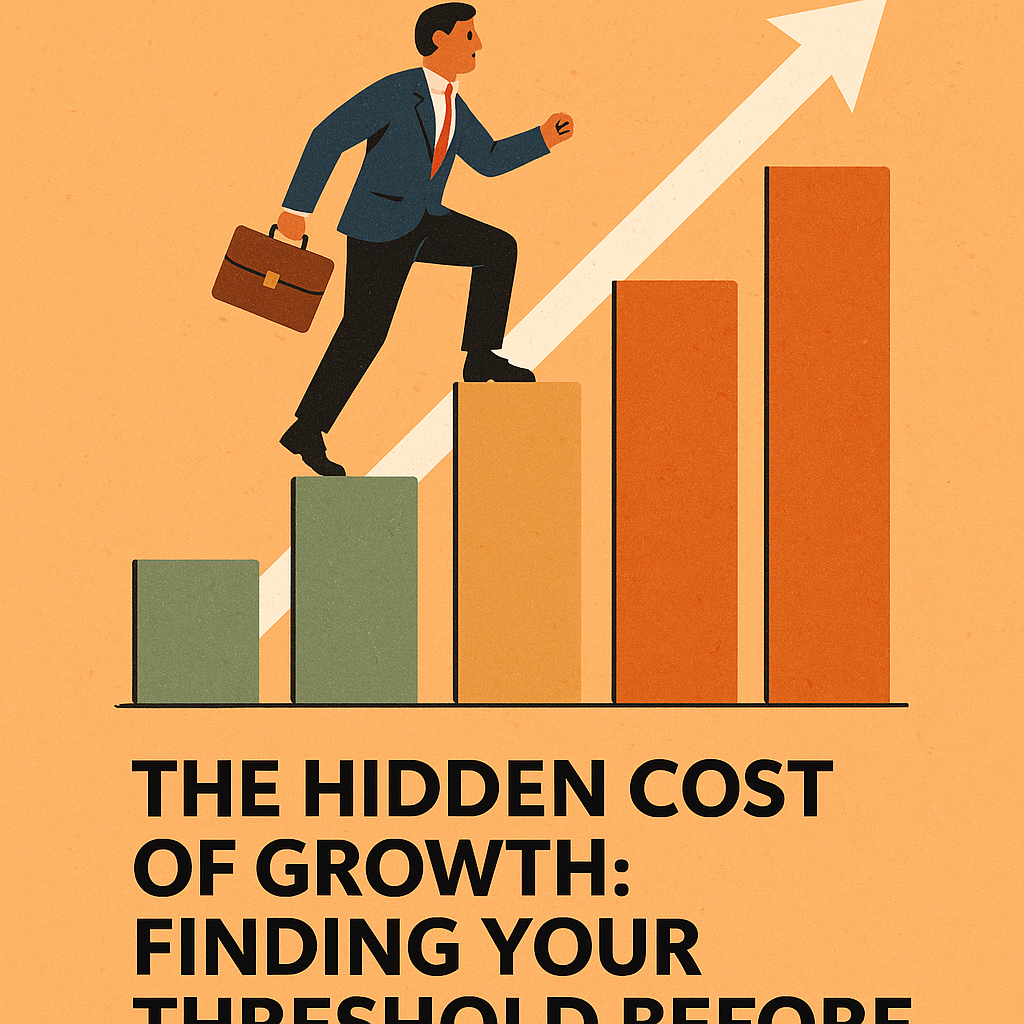Posted on June 7, 2025
The Hidden Cost of Growth: Finding Your Threshold Before You Break
Growth—financial, personal, or professional—isn’t just about climbing a ladder. It’s about resource management: time, money, energy, and attention. And too often, we push ourselves so hard at one level of life that we leave no resources behind to actually grow into the next.
The First Floor: Building From Zero
When you’re starting from nothing—no savings, little income, and barely enough time or mental space—your time becomes your main currency. You trade hours for wages. It’s survival.
But here’s the catch: if you spend all your time just trying to earn money, you’ll have nothing left for the things that move you forward—learning, resting, enjoying life, or dreaming bigger. You’ll burn out. You’ll stagnate. You’ll survive, but not thrive.
And if you go into debt—financially, emotionally, or mentally—just to keep up appearances or chase short-term relief, you dig yourself deeper. You lose the margin needed to invest in growth.
The Second Floor: The Illusion of Stability
Let’s say you rise above the minimum-wage hustle. You move up: better income, maybe a better job. But a new trap appears.
Now you’re surrounded by people who drive better cars, wear better clothes, and dine in fancier places. You feel the pressure to “fit in.” So you spend more—maybe on a nicer car, or a more expensive apartment. It feels justified. You’re “leveling up,” right?
But again, you’ve consumed your spare resources. There’s no slack left to invest in the next stage—whether it’s starting a business, switching careers, or saving for a long-term dream. You’ve upgraded your lifestyle, but not your future.
The Growth Gap
Every stage of growth needs a buffer zone—a surplus of time, money, and mental energy. That surplus is what fuels your jump to the next level.
If you live right at the edge of your limits—maxed out credit, no days off, endless stress—you are using your growth capital just to keep up. It’s like eating the seeds you were supposed to plant.
The Art of Holding Back
Real independence isn’t about being rich—it’s about having enough space in your life to say “no” to things that don’t serve your growth.
- It’s not buying the luxury car just because you can.
- It’s choosing the job that pays slightly less but gives you peace of mind and time to build your dream.
- It’s delaying gratification—strategically.
Growth requires restraint. The ability to not consume all you earn, not work every hour you’re awake, not live up to someone else’s standard just because you’re “supposed to.”
The Growth Mindset Is a Resource Game
At every level, ask yourself:
- How much am I saving—not just in money, but in time and mental bandwidth?
- Am I overextending myself to meet external expectations?
- Do I have enough left over to invest in what actually grows me?
Because growth isn’t about working harder. It’s about working smarter—preserving just enough of yourself to rise again tomorrow.

